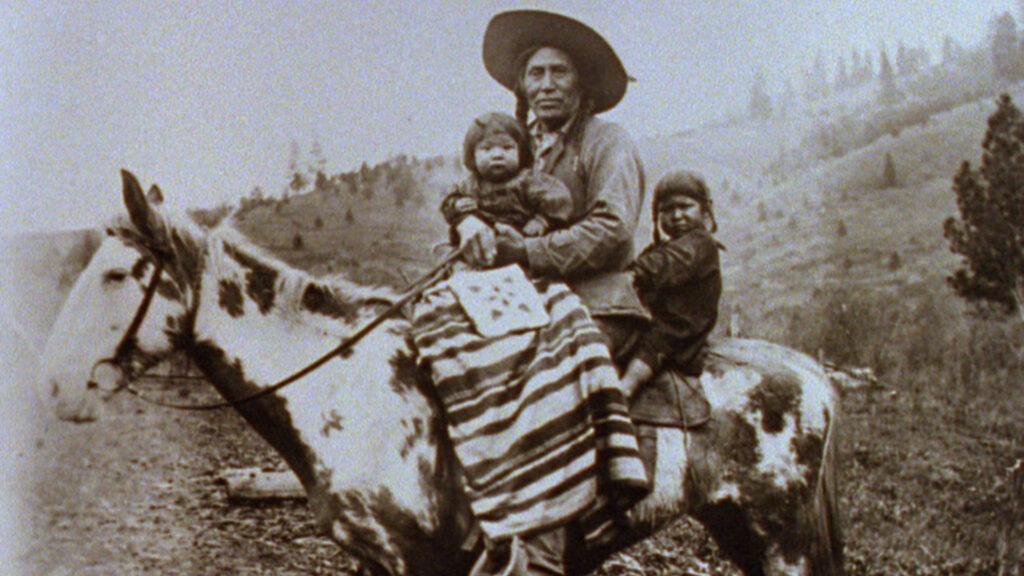
Despite how it is often marketed, The West (1996) is not a film by Ken Burns. The West was produced by Insignia Films (a production company founded by director Stephen Ives eight years before The West first aired on PBS) and was executive produced by Ken Burns. However, the influence of Ken Burns is felt throughout Stephen Ives’ twelve hour documentary on the American West.
The West came out six years after Ken Burns’ groundbreaking The Civil War. This modern classic served as a kind of blueprint for both the style and structure of Ives’ The West. The use of old photographs with voice over narration read by a famous actor and sourced from a first hand account of a historical event make up the bulk of The West, as was the case with The Civil War. Like the earlier film The West is built around an omnipotent narration (read by Peter Coyote) into which these first hand accounts are interspersed alongside talking heads (in the form of highly esteemed historians) and folkloric anecdotes. The information dispensed by Ives comes from scholars, generals, politicians, indigenous people, white settlers, immigrants from China and Europe; practically anyone who played apart in the making of the Western mythos is accounted for.
But beyond employing Ken Burns’ signature style, Ives adopts the formal structure of The Civil War for The West. Where The Civil War is essentially one narrative told from two perspectives (the Union and the Confederacy), so The West tells the story of western expansion from two drastically different perspectives (the white Americans and the Native Americans). The West chronicles events like the battle for the Black Hills between the Lakota and Cheyenne peoples with the same gravitas and sense of importance as the exploits of white American figures like Kit Carson or the Mormons.
What The West does best is present the most mythologized aspect of post-colonial North American history as an all inclusive tapestry of fact and legend. Individuals and groups who have been marginalized by myth making and popular media are resurrected and thrust center stage into this historical drama. The West, more than Burns’ The Civil War could ever be, is a much needed course-correct in how American culture and society reckons with our shared history.
